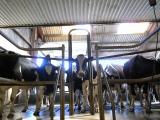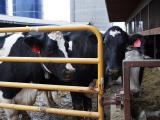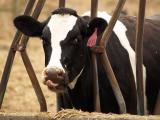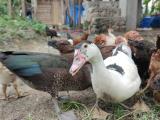Dec 6, 2010
Egypt announces woman's death from H5N1
Egypt's health ministry announced Dec 4 that a 30-year-old woman had died of H5N1 avian influenza, the Kuwait News Agency (KUNA) reported. She lived north of Cairo. If the World Health Organization (WHO) confirms her illness and death, they will be listed as the country's 113th case and its 37th fatality from the virus. Egypt's last H5N1 case was reported in late August, in a 33-year-old woman who died. Her illness raised Egypt's case count for 2010 to 22 and the number of deaths to 9.
Dec 4 KUNA story
Nepal, Azerbaijan report avian flu outbreaks
Veterinary officials in Nepal announced yesterday that H5N1 avian influenza was involved in an October outbreak at a commercial poultry farm in Chitwan district, located in the central part of the country, according to a report from the World Organization for Animal Health (OIE). The outbreak killed 66 birds, and the remaining 11,437 were culled to control the disease. The source of the outbreak has not been determined, and surveillance hasn't turned up any other cases. Nepal's national laboratory identified the virus with rapid tests and real-time polymerase chain reaction (PCR) tests, and the findings were confirmed by the Veterinary Laboratories Agency in Weybridge, United Kingdom. Nepal's last H5N1 outbreak occurred in March 2010. Elsewhere, in an investigation into bird deaths at a poultry farm in Azerbaijan, initial tests revealed an H5 virus, and more tests are under way to determine if it is the highly pathogenic H5N1 strain, the Azeri Press Agency (APA) reported Dec 3. The outbreak occurred on a farm in the western part of the country, according to Xinhua, China's state news agency. Other nearby farms were also reporting bird deaths.
Dec 5 OIE report
Dec 4 Xinhua story
Study: Vaccination sequence affected response to 2009 H1N1 vaccine
Chinese researchers found in a trial last year that people who received the 2009 H1N1 vaccine after or at the same time as last year's seasonal vaccine had a lower immune response to the pandemic vaccine, according to an online report from Vaccine. The researchers divided 151 health adults into three groups. One group received the pandemic vaccine first and the trivalent seasonal vaccine 3 weeks later, another group received the vaccines in the reverse order, and the third group received both vaccines simultaneously. All three groups had responses to the H1N1 vaccine that met European Union licensing criteria. However, in those who received the seasonal vaccine first or both at the same time, the immune response to the pandemic vaccine, as measured by hemagglutination inhibition titer, was 50% lower than in those who received the pandemic vaccine first. Similar significant reductions were seen when the immune response was measured by microneutralization assay and B cell assays. Noting that current seasonal trivalent vaccines include the 2009 H1N1 virus, the researchers say the effect of this reduced immune response on 2009 H1N1 infection levels will be apparent only from future retrospective epidemiologic studies.
Dec 3 Vaccine report
Seattle institute gets BARDA funds to develop vaccine adjuvants
The Seattle-based Infectious Disease Research Institute (IDRI) recently announced it was awarded a $1.8 million federal government contract to develop adjuvants for pandemic influenza vaccines. The contract is from the Department of Health and Human Services' Biomedical Advanced Research and Development Authority (BARDA), IDRI said in a Dec 3 press release. "IDRI's work will focus on development of adjuvant formulations with options up to $8.5 million over three years when further development and manufacture of priority candidates are approved by the agency," the statement said. BARDA announced in September that IDRI was receiving a contract for adjuvant development, but it did not specify any amounts at that time.
Sep 21 CIDRAP News story



















